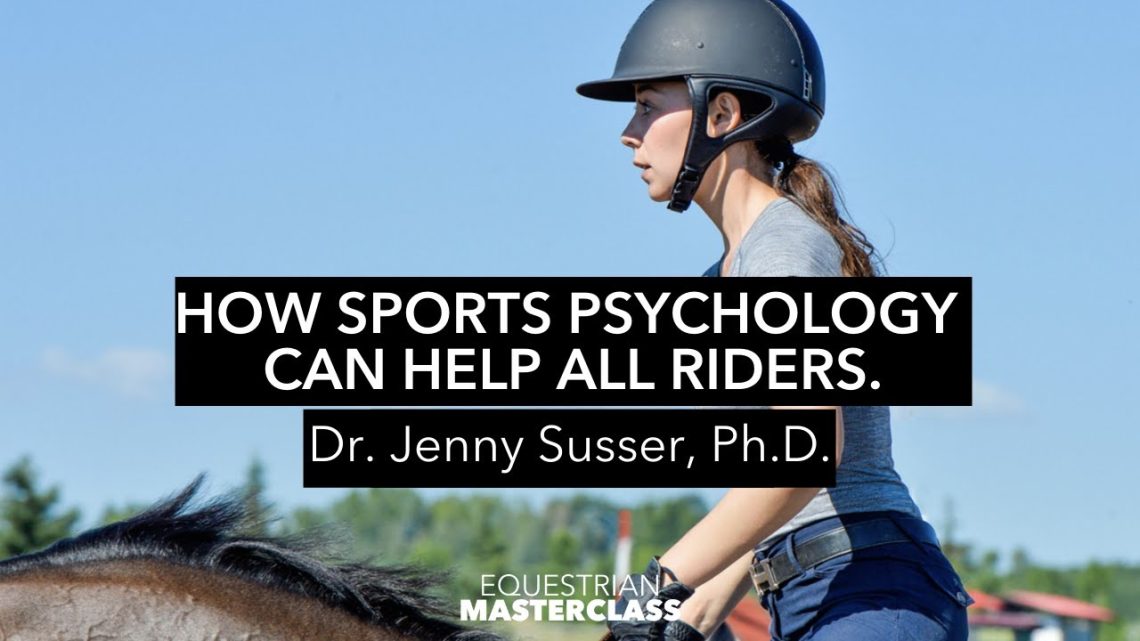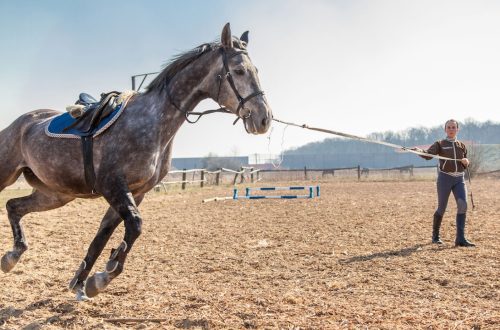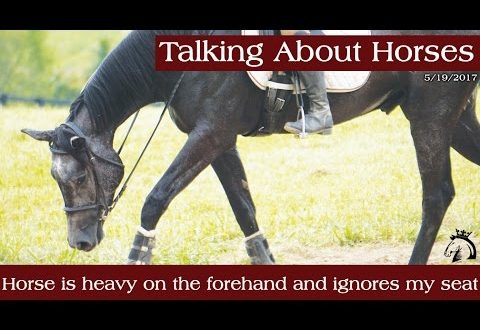
Helping the Rider: Sports Psychology
Helping the Rider: Sports Psychology
Sports psychologist Jenny Sasser runs the Riding and Trust Clinic in New Jersey.
Seven years ago Jean Nirzvik’s life turned upside down. A horse strike left a real estate agent, mother of two, horse and farm owner with a fractured pelvis. During the treatment of the fracture, she was diagnosed with pancreatic cancer, and the doctors gave the woman only a year to live …
Unexpectedly, the fracture nevertheless healed, and the cancer turned out to be a benign tumor. Great news, right? But, when Jean returned to dressage and mounted the young Frieze Martin, with whom she had previously worked successfully and confidently, the woman felt nothing but problems in her “new body and new mood”. At the competition, she passed 40% and received sharp comments from the judges (“lack of skills to ride this horse” and even “not ready for riding this level”.
“My horse was looking for confidence in me, and I couldn’t give it to him,” Jean said. “He rode badly, I rode badly … I was at a crossroads – to give up this horse or not to give up and try to cope with the problems.”
A similar situation happened with the Olympic bronze medalist Ashley Holzer (Canada) – the rider almost gave up one of her horses due to the fact that she could not get a certain movement from her. No matter how much Ashley fought over him, there was no result. “I almost went crazy then,” she recalls.
What can be common between the problems of an amateur rider and an Olympic rider? Only that both the first and the second need to put their “brains” in order, and not horse ones at all.
Sports psychology seeks to help athletes improve their performance levels and enjoy the sport. This is achieved by solving problems caused by psychological and mental factors. I was a professional swimmer and have been riding horses for a long time, so I know firsthand about nervousness during competitions and how important it is to negotiate with your sports partner – a horse.
I met Jean during the Riding and Trust Clinic at Michigan State University’s Equine Performance Center. I needed to watch each rider ride to determine what makes him or her nervous, scared or emotional. Each of us while driving there are fears and fears that come from a variety of sources.
I noticed that Jean, being in the arena, was worried about everything in the world: “Who is looking at me? Will I disappoint my coach? What are my grades? Am I driving right? What happens at work in my absence? And, of course, the biggest fear is that I will now be disgraced!”
“The very fact that I was pointed out all this helped me understand what I needed to fix,” Jean later said. — I need to abstract. Everything else will have to wait.”
I told Jean about some tricks you can use when you start to feel anxious and things don’t seem to go according to plan. They allow you to take a breath, calm down and regain confidence (“You’re done, you can do it”).
Stretch the “muscles” responsible for focusing
There are many tools that can help you take control of your mental state and enable you to achieve your goals, both at home and on the battlefield. Key points – focus, thoughts (think), prepare. Can you control your focus?
When it comes to whether we are coping with outside forces, we often forget that focus is a muscle. In this regard, we are lazy. How many accidents happen because people can’t concentrate.
I want to talk about Jan Ebeling, the master of focus. In 2012, he found himself in an incredibly tense situation. His partner at the 2012 Olympics was a horse named Rafalca, partly owned by the wife of Republican presidential candidate Mitt Romney. In this regard, the public and media attention to the couple has been especially intense, and often not in a positive way. Luckily, Ian worked with the top sports psychologist in California and was determined to block it all. He had all the tools and he knew how to manage his attention, how to control it. He prepared a lot, and coped well with the problem. The “muscle” responsible for focusing worked perfectly for Jan. Therefore, when something negative happened, he simply stressed her out. It was like, “What am I focused on? Oh no, that’s not what I need to focus on.”
We cannot think effectively about everything in the world. No multitasking. There are serial tasks. So choose one thing to focus on and then do it. That’s when you can improve everything. You can learn do the right way, instead of thinking: “Why is this person in the podium?” or “I hate that part of the ride.”
To focus, you need mental energy. You have to think a lot, and each thought requires a certain amount of mental energy. Every day we wake up with a “full tank”. But where do we spend this energy?
The first thing that can help us focus is to develop a routine. By systematically following the same “rules” of brushing and saddling your horse, you can learn to focus on the training goals you plan to achieve.
To free up mental energy in preparation for the tournament, try to prepare in advance – to pack. Make a list of all the things you will need and build them up little by little. As a result, you will be sure that everything (!) that you will need is collected and located in one specific container / box. This will save you energy later on by allowing you to simply “don’t think about it.”
If you don’t worry about “Did I take this, did I take that?”, you can use your energy to control your attention on the battlefield.
Similarly, you will need to prepare for the unexpected so that in the event of an emergency at the tournament, you can use your own plan, knowing how to proceed. You can come up with such a plan by carefully considering your riding and asking yourself questions such as “What does my horse usually do in a certain situation? Do I have a strategy to deal with it, and if not, what can I do before the tournament to prepare?”
Sometimes, alas, things start to go wrong, but you can still do everything you can to lessen the chances of completely ruining your plans. Being prepared means that you are aware of a wide variety of scenarios.
You need to know how much you can ask from a horse on a given day. The point is not to completely remove the possibility of bad behavior, but to be better prepared for it.
Using imagination and visualization
When you encounter stressors that cut off the flow of your psychic energy, you can focus in more positive directions. Research has shown that positive imagery can change your response to stress. But help should be specifically tailored to your needs and fit you. Telling yourself “I can do it”, you have to believe in it. Unsupported mantras and beliefs usually do not work.
In Jean’s case, by developing a mental image for a specific short-term (e.g., “drive a ride”) or long-term goal (“get to the Grand Prix level”), she will stop being obsessed with mistakes and begin to visualize and focus on what she wants to achieve.
“Because I am visual, this advice turned out to be very effective for me,” Jean later recalled. – I introduced that I was an Olympic participant Debbie McDonald, and Martin was Brentina. It always seemed to me that Debbie was beyond doubt and absolutely confident that Brentina would not let her down.
By keeping this image in mind, Jean was able to let go of her negative thoughts and stop being her own worst critic. The fact is that a person needs to strive to become his most devoted fan, and not vice versa.
Another dressage athlete I worked with was suffering from a CUR problem. For some reason she was driving without enthusiasm. I advised her, “Imagine a thermometer and the temperature of the energy rising with the mercury.” The rider used this advice, and it worked out for her. She won the competition and liked this new method.
Visualize the ride before heading to the battlefield. Imagine your ideal ride and drive it in your head. This simple and highly effective technique is used by top athletes all over the world.
Develop a breathing habit
Another technique to help focus is your breathing. When we get nervous, we tend to hold our breath, and this happens automatically. This habit dates back to ancient times, when our ancestors held their breath to better hide from a predator. This is the reaction of our nervous system.
By continuing to breathe evenly during stressful situations, such as competitions, you can reduce your anxiety levels. The key is the ability to “teach yourself to breathe all the time.”
Awareness and habit will help you (you will have to act with great desire until it develops into a habit). Set an alarm on your watch to go off every minute, reminding you to breathe properly. This habit should be developed long before the first tournament. Just start doing it. Who cares how long it takes? You will gradually progress, as in everything else.
At the 2010 FEI World Equestrian Games, I noticed that before entering the arena on Totilas, Edward Gaul stopped in a corner and took a deep breath before picking his horse up to the center line.
Think about your horse
You also need to be realistic about what you can expect from your horse both at the show and at home. When your level of expectations matches reality, everything will turn out much better for you.
Keeping your own nerves in mind, be mindful of your horse’s mood swings as well.
We work in an ideal isolated environment and expect that when we get into another environment, the horse will say: “No problem!” But this does not work with every horse.
Therefore adequate preparation is just as important for the horse as it is for the rider. When it comes to horses that have no tournament experience, I usually recommend doing home rehearsals: braid your mane, saddle your horse in tournament gear, put on your tournament uniform and ride at home in front of friends and family to simulate a tournament situation in a familiar setting before than to raise the stake and bring the horse to another club.
In other situations, you may need to change your perspective on why your horse is responding to you in a certain way. So it was helpful for Ashley to think about the missing movement from the other side (“Maybe your horse is performing the movement as well as he can, and this is his limit?”)
“I was able to take a different point of view – instead of being disappointed, I tried to be realistic and understand that a particular movement is probably very difficult for this particular horse,” Ashley later said. “I rethought the situation and changed my approach, completely changed the approach to training, and the horse began to respond better. I began to encourage and reward the horse more, without loading him with endless repetitions. My point of view has changed. This is what sports psychologists are supposed to do. Their goal is not to tell us how to ride better, but to explain how to relate to certain things and how to become better.”
Jean improved her results to over 70%. She subsequently became the 2012 Midwest Dressage Association Schooling Show Novice Rider Training Level Champion, Adult Amateur Reserve Champion and 2013 Adult Amateur First Level Schooling Show Champion.
Sports psychology is not a cure, but it is an important tool to use. “Have all my riding problems gone miraculously? Jean says. No, but now I see things differently. New inspirational phrases help me – “it’s just a tournament; just have fun. Everything should be fun.”
Jenny Sasser (source); пerevod Valeria Smirnova.





